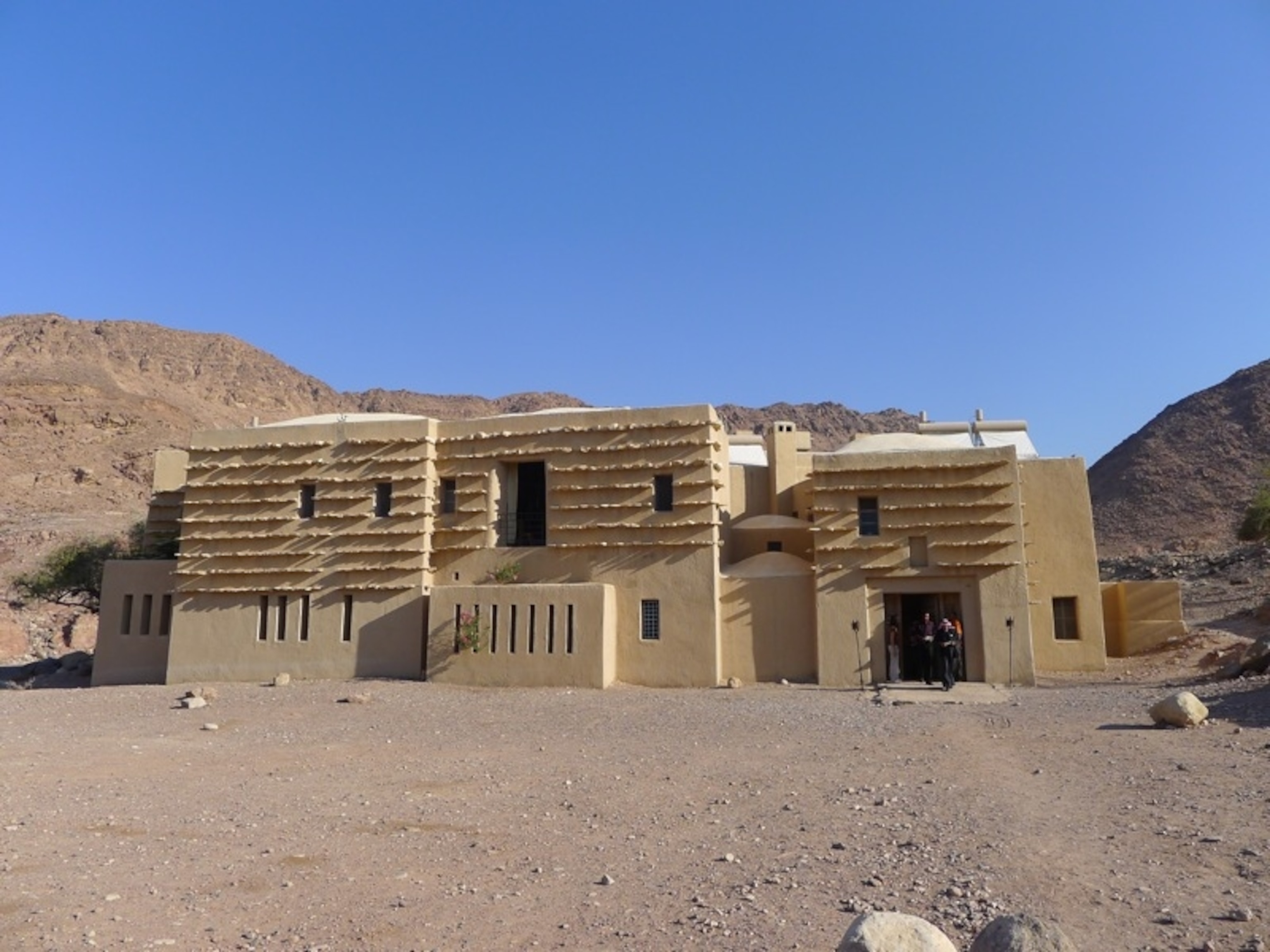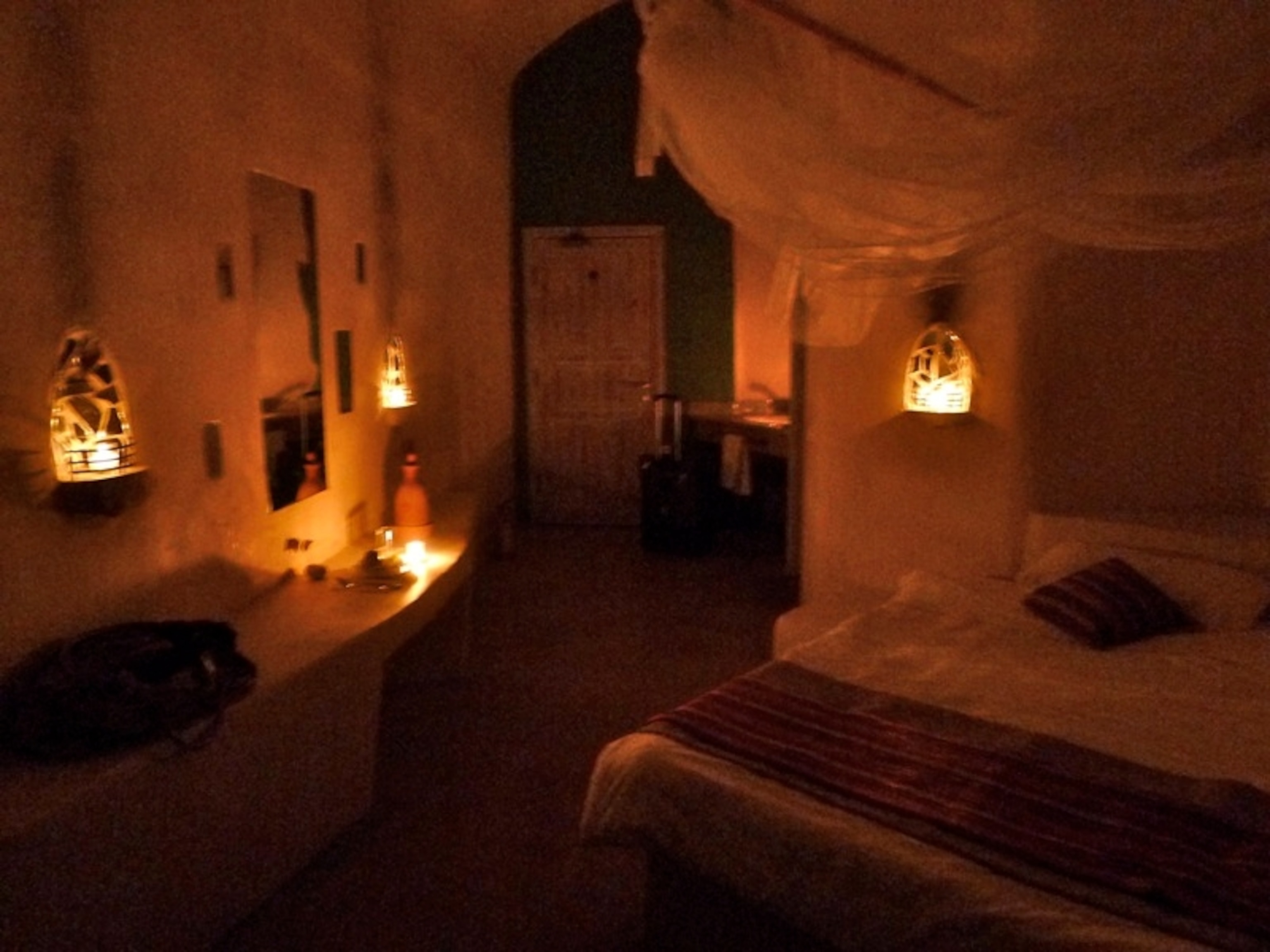
Coffee With the Bedouins
Writer Annie Fitzsimmons recently returned from a 10-day cultural trip to Jordan. This is her second dispatch. Read the first one here.
Sitting beneath a starry sky in the Dana Biosphere Reserve in Jordan, 65-year-old Bedouin tent dweller Muhammed Amareen looked at me with a twinkle in his eye and said, “If you’re 28 and not married, you’ve lost it!” It wasn’t the first time that my stomach hurt from laughing during a three-hour conversation about life, work, love, and marriage with the kind, smart Bedouin clan leader. (Bedouins, by the way, typically get married at 25 or 26 so 28 is not so over the hill!)

How did I get to be sitting in a Bedouin tent in the middle of the Jordanian desert? I was with a group of hotel guests from Feynan Ecolodge, a vital support line to the area’s three main Bedouin clans of around 400 people including 45 children who attend the local school. One of the hotel’s employees, Khalid, invited us to his father’s tent, a ten-minute walk from the 26-room lodge, for an after-dinner coffee
As I sat on pillows overlaid with colorful homemade rugs in Muhammed’s tent, I felt blissfully far away from my chaotic life in New York City and lucky to get a glimpse into a way of life that may cease to exist in the coming decades. Most Jordanians can trace their roots to Bedouin origins, those traditionally known as “desert dwellers,” who have learned how to survive and thrive in the harsh desert climate. But the modern world continues to threaten their way of life.
I asked Muhammed what is his favorite part about Bedouin life and through a translator, he told me, “I love the solitude and quiet. It is much better for your soul and health than the city.” He admitted that many of his adult children were moving to cities and that the traditional way of life may end for his offspring. He talked of his fears concerning his work herding 100 goats, such as the rising cost of goat feed and threats from foxes and wolves.

But tourism does its part to help sustain these communities, many of which struggle with poverty. A stay at Feynan Ecolodge directly benefits the delightfully hospitable people here: Nearly all of the ecolodge’s staff is from nearby communities, local women demonstrate candle-making and sell their wares to guests, and all revenue generated from transportation from the reception center to the lodge goes directly to local drivers.
Environmental preservation is also part of Feynan’s ethos. I loved the romantic atmosphere of the courtyards, decks, and rooms lit by candles, the only source of light except for one light bulb in each bathroom. All power is solar-generated and off the electrical grid, keeping with the owner’s green philosophy (Feynan is operated by the Royal Society for the Conversation in Nature, which promotes socio-economic development for low-income communities near Jordan’s nature reserves.)

The ecolodge’s welcoming atmosphere is a reflection of the Bedouin tradition. No traveler is ever turned away from a Bedouin community, and is asked why they came only after three days have passed and mainly out of pure curiosity. I felt this genuine warmth and welcome from the moment I stepped into the candlelit tent.
By the end of our night with the Bedouins, we were all invited to Muhammed’s son’s wedding. Sadly, we would be gone from Jordan by then. I would have felt guilty attending, as we found out that the party would cost the equivalent of $5,000, with 20-30 goats killed to feed the entire community. I returned to my candlelit room at Feynan, wishing there was a way to return the hospitality I was shown, and realized that I was giving in a different way by simply booking a room for the night.
- National Geographic Expeditions
Annie Fitzsimmons is a New York-based travel and hotel writer. She is a frequent contributor to publications that share her love of exploration and discovery. Follow her adventures on Twitter at @anniefitz and on her personal blog, Hotel Belle.
[Top Desert Ecolodges: National Geographic Adventure]